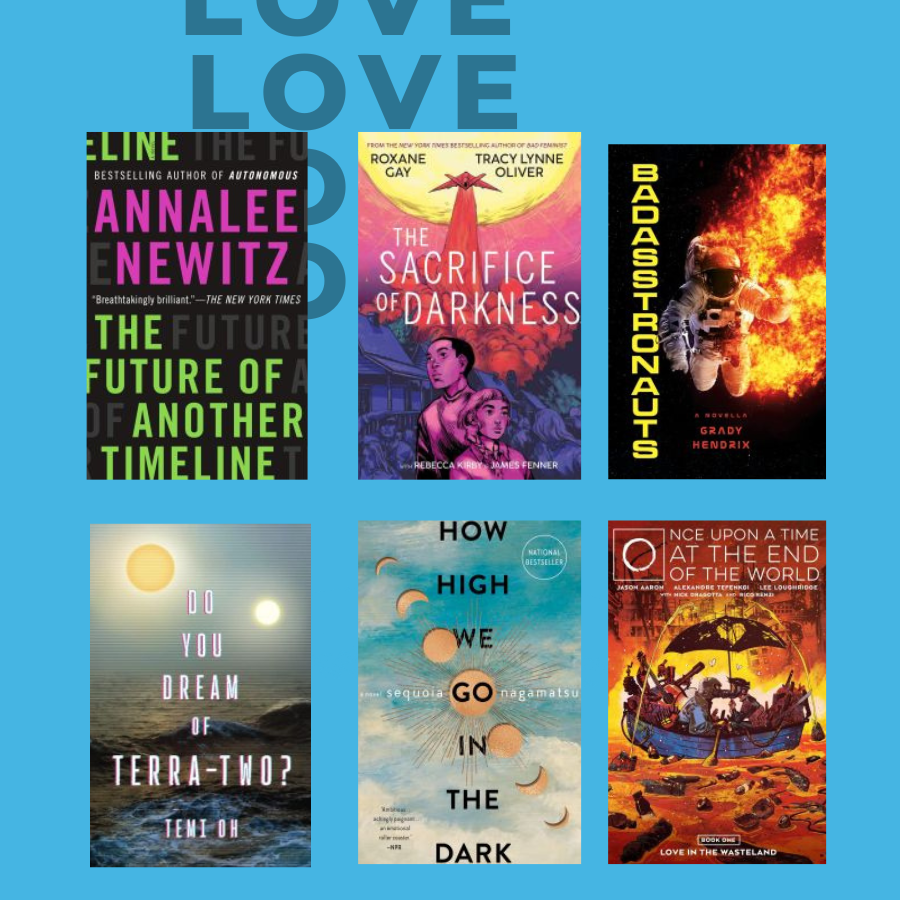This post may include affiliate links, which means we make a small commission on any sales. This commission helps Feminist Book Club pay our contributors, so thanks for supporting small, independent media!
For much of my life, horror has been the genre I’ve preferred to escape into. The horror I consume allows me to explore my anxieties at a remove. It shows my fears as things that can be conquered or—at the very least—survived. And it does so in a way that, with its embrace of the supernatural, is flipping fun.
But lately, I’ve found myself picking up sci-fi more often, and I’ve noticed that the books I enjoy the most have a common thread running through them: hope.
How many times can I write about the hopelessness of the past decade? You’ve heard it all before. The 2016 election. The rise of white supremacy. The January 6 insurrection. The effects of climate change. The endless mass shootings. The relentless attacks against the rights of Black folks, LGBTQ+ folks, Indigenous folks, immigrants, motherfucking drag queens reading to preschoolers. It’s hard to find hope in a country that seems to be consuming itself with its own hate. It’s hard to find hope in humanity.
But in certain sci-fi reads, I’ve been able to find more than mere wish fulfillment (though there’s been a bit of that, too). I’ve been able to see the ways in which humanity is always hoping, always seeking to make something better of itself.
Maybe there’s still a future to be had, one that’s not as ugly and hateful and inevitable as the news stories would have us believe. Maybe we can read stories of hope and, instead of becoming mired in hopelessness, make something better.
Here are the sci-fi books that are inspiring me.
The Future of Another Timeline by Annalee Newitz
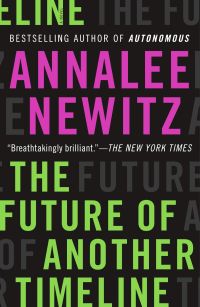
Okay. I read The Future of Another Timeline back in 2020, and I think it was maybe the first sci-fi read (since my childhood, anyway) that made me realize that maybe I enjoy sci-fi? Newitz’s book is about a time-traveling woman who’s part of a secret group that’s determined to use time travel technology to manifest a better future for women and nonbinary folks. The main protagonist spends most of her time in an era touched by the Comstock Act (ugh). I absolutely loved this adventure sci-fi in which a bad-ass group of women and nonbinary folks go toe-to-toe with a group of incels who are attempting to make life a living hell for marginalized groups — permanently.
The Sacrifice of Darkness by Roxane Gay, Tracy Lynne Oliver, and Rebecca Kirby
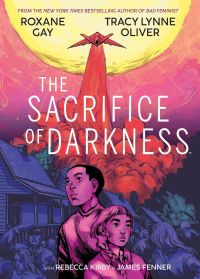
The Sacrifice of Darkness—a graphic novel adapted from Gay’s short story of the same name—reveals a universe in which the world has been bathed in darkness as the result of a tragic event. Basically, a man flew an air machine into the sun, turning the world dark. The darkness persists for years and members of the community begin to turn their resentment and hate toward the family he leaves behind. The fabulist story that follows is one of guilt and persecution and class and survival. But intertwined throughout is a sweet love story that provides readers with a beautiful thread of hope.
Badasstronauts by Grady Hendrix
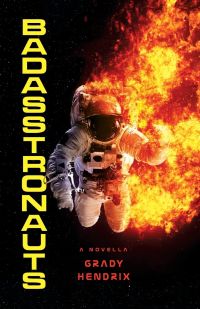
I usually read Hendrix for his campy horror, but in Badasstronauts, he turns to comedic sci-fi, spinning a ridiculous, novella-length tale of a failed astronaut who decides to build his own spaceship when his cousin ends up stuck on an abandoned space station and NASA refuses to rescue him because of budget cuts. As his (highly illegal and highly improbable) project progresses, misfits, drifters, science nerds, and the other detritus of society gather to lend their efforts. And in this project, they find hope and the ability to believe in themselves again.
Do You Dream of Terra-Two? by Temi Oh
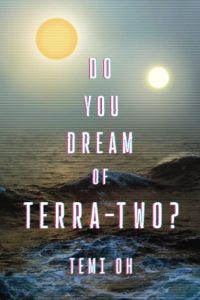
Do You Dream of Terra-Two? pubbed in 2019, but I just read it for the first time last month. In this sci-fi novel, scientists discover another planet that could possibly sustain life. And so they open an academy at which kids study and train and compete to be among the six teens who will eventually be sent into space, alongside three veteran astronauts, so that they may eventually colonize this new Earth. The chapters cycle through the perspectives of each of these six teens, showing readers how they handle the inevitable setbacks that occur. No matter what happens, however, there are some who never give up hope that they will be able to create this new utopia for humanity.
How High We Go in the Dark by Sequoia Nagamatsu
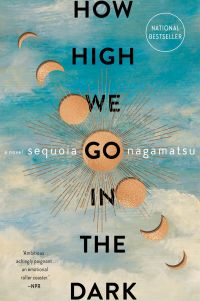
This one was another recent read. In How High We Go in the Dark, researchers in the Arctic Circle unleash an ancient plague across the world. Through linked stories, Nagamatsu shows us how humanity copes with this wave of fear, death, loss, and grief. Don’t get me wrong. There’s a sadness that wends its way throughout this book, frustration over the commodification of grief, the sense that humanity won’t be able to come back from this. But at the very end (and I don’t want to spoil anything), there is also a tiny glimmer of hope that—even though it is small—feels satisfying.
Once Upon a Time at the End of the World by Jason Aaron, Alexandre Tefenkgi, and Lee Loughridge
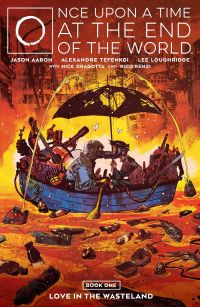
I just finished the first arc of this new comic series, a post-apocalyptic sci-fi story about two very different people who stumble upon each other and—despite themselves—fall in love as the world falls apart around them. There’s something so charming about the love story at the heart of Once Upon a Time at the End of the World. Mezzy has been taught to eschew love and connection as she and her fellow wastelanders search for the promised land where they’ll finally be able to live without fear. Maceo, meanwhile, is delightfully excitable despite the loss of his parents, and invites himself along on Mezzy’s long journey. Together, they may just be unstoppable.
For more sci-fi reads (after you finish all of these, obviously), check out Nina’s list of feminist sci-fi to add to your shelf and listen as Renee and Natalia make the case for sci-fi as a genre that deserves all your respect, dammit.

